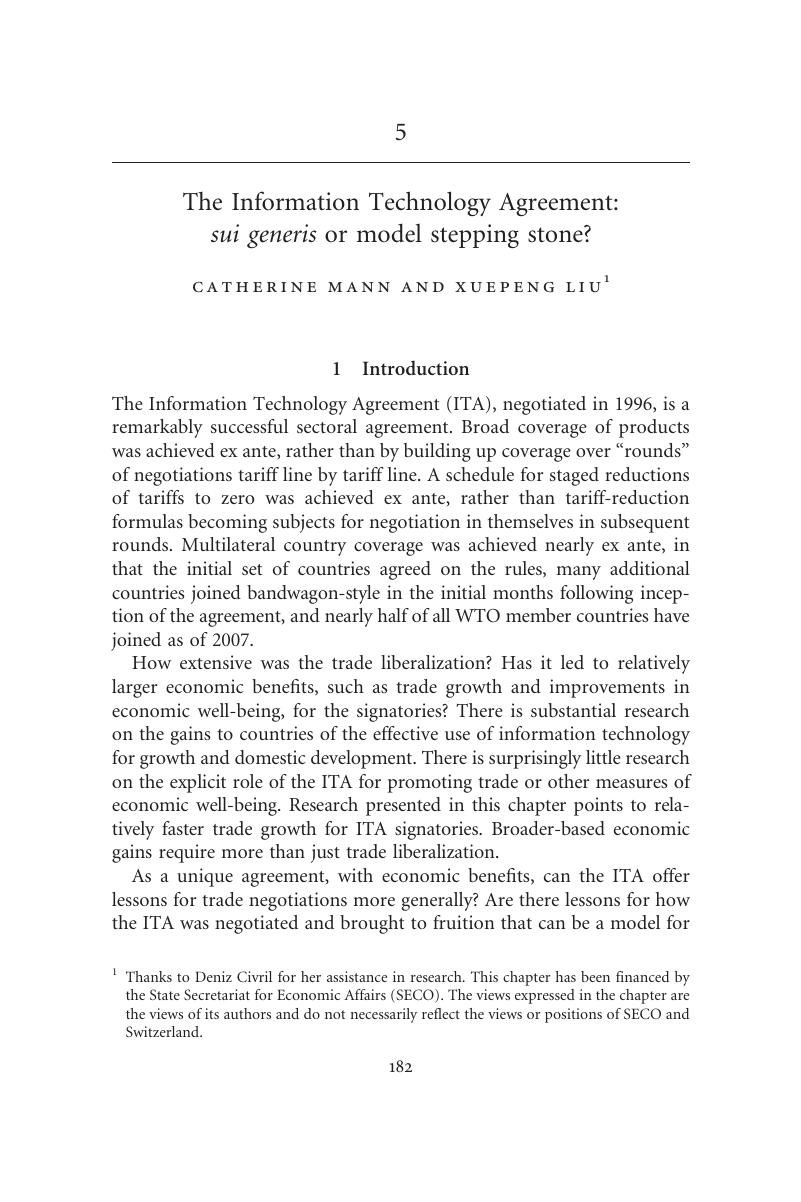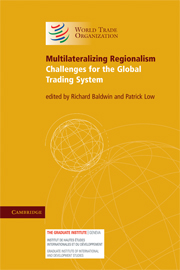Book contents
- Frontmatter
- Contents
- List of contributors
- Foreword
- Acknowledgements
- Introduction
- PART I Background to Regionalism
- PART II Multilateralization: Prospects and Past Experience
- 3 Beyond tariffs: multilateralizing non-tariff RTA commitments
- Comment
- 4 Multilateralizing regionalism: lessons from the EU experience in relaxing rules of origin
- 5 The Information Technology Agreement: sui generis or model stepping stone?
- Comment
- PART III Multilateralization: Sectors and Themes
- PART IV Multilateralization: Regional Perspectives
- Index
- References
5 - The Information Technology Agreement: sui generis or model stepping stone?
Published online by Cambridge University Press: 05 March 2012
- Frontmatter
- Contents
- List of contributors
- Foreword
- Acknowledgements
- Introduction
- PART I Background to Regionalism
- PART II Multilateralization: Prospects and Past Experience
- 3 Beyond tariffs: multilateralizing non-tariff RTA commitments
- Comment
- 4 Multilateralizing regionalism: lessons from the EU experience in relaxing rules of origin
- 5 The Information Technology Agreement: sui generis or model stepping stone?
- Comment
- PART III Multilateralization: Sectors and Themes
- PART IV Multilateralization: Regional Perspectives
- Index
- References
Summary

- Type
- Chapter
- Information
- Multilateralizing RegionalismChallenges for the Global Trading System, pp. 182 - 216Publisher: Cambridge University PressPrint publication year: 2009
References
- 5
- Cited by

